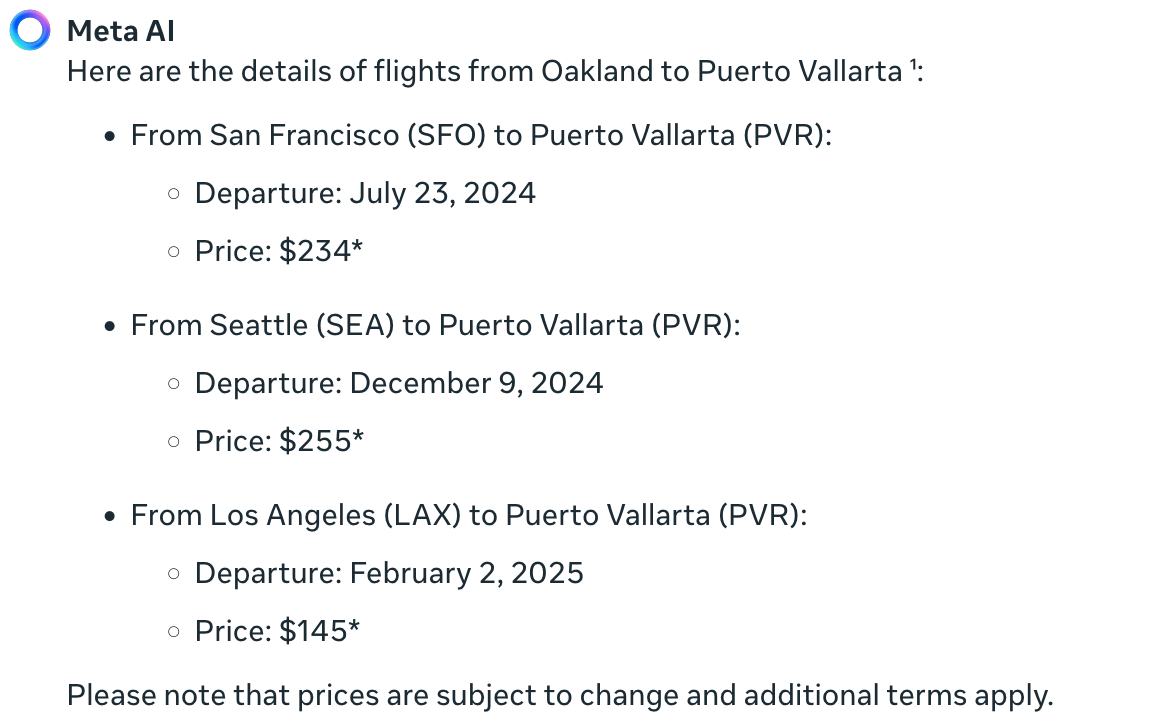Navigating the Pitfalls of Meta’s AI Assistant
In the tech world’s latest leap towards integrating artificial intelligence into our daily digital interactions, Meta has unveiled an AI assistant embedded within popular apps like Instagram, Messenger, and WhatsApp. This new feature allows billions of users to engage in a wide array of interactions, from casual queries about the weather to whimsical requests for poems and images. However, as we usher in this era of convenience and creativity, it’s important to tread carefully.
Meta’s AI assistant is positioned as a direct competitor to other industry giants such as OpenAI’s ChatGPT, Google’s Gemini, and Microsoft’s Bing AI. It stands out not just for its functionality but for its widespread availability – a free tool within platforms already integral to our daily routines. CEO Mark Zuckerberg hails it as the “most intelligent AI assistant” freely available, signifying Meta’s bold step in mainstreaming generative AI technologies.
But is it too good to be true? After six days of testing, discrepancies and limitations of Meta’s AI became apparent, especially when used as a search engine substitute.
It’s not a search engine
Meta announced its chatbot as a replacement for web search. By typing queries for Meta AI into the search bar at the top of Messenger or Instagram, a group of friends planning a trip could look up flights while chatting, the company said.
From generating inaccurate travel information to providing incomplete recipes and even crafting responses based on non-existent businesses, it’s clear that this AI assistant still has hurdles to overcome in understanding and processing factual information accurately.
Meta AI fails spectacularly at basic search queries like looking up recipes, airfares and weekend activities.

Meta’s chatbot could not find flights for a trip from Oakland, Calif., to Puerto Vallarta, Mexico.
Meta’s ambitions to replace traditional web search may be premature, as the assistant falls short compared to its peers like Bing AI and Gemini. This discrepancy emphasizes the efficiency and reliability still found in conventional search methods. Furthermore, when tasked with mathematical challenges, Meta’s AI, similar to others, struggles with precision, highlighting a fundamental flaw in its current capability to manage numerical data accurately.
Despite these challenges, Meta’s foray into AI chatbots is not without merit. It has sparked a necessary conversation about the technology’s potential to reshape user interaction and engagement on social platforms. However, users are urged to approach with caution, recognizing the assistant’s current limitations and potential misinformation risks.
Experts from the fields of technology and ethics have weighed in, stressing the importance of balancing innovation with responsibility. “While Meta’s A.I. assistant shows promise in pushing the boundaries of user interaction, we must treat it with caution as it navigates the delicate balance between novelty and reliability,” says a tech analyst from Wired. Similarly, an AI researcher from MIT Technology Review highlights the paradox of advanced chatbots: “We have to acknowledge their power to entertain and inform, but also their potential to deceive and manipulate.”
You can use it for fun emojis
The most compelling aspect of Meta AI is its ability to generate images by typing “/imagine” followed by a description of the desired image. For instance, “/imagine a photograph of a cat sleeping on a window sill” will produce a convincing image in a few seconds:

As Meta continues to refine and expand its AI capabilities, the broader implications for user trust and the ethical deployment of such technologies remain at the forefront of the discourse. The democratization of AI tools, while a significant milestone, also underscores the need for comprehensive scrutiny of how these innovations shape our information landscape and influence social interactions.
In conclusion, Meta’s AI assistant epitomizes the exciting yet precarious path of technological advancement. Users and industry stakeholders alike are called upon to engage with these tools mindfully, staying informed of their limitations while advocating for continued improvement and ethical practices.











